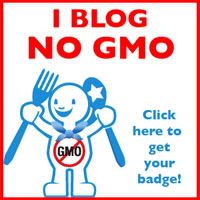Knowing that approximately 2.5 million children take medications like Ritalin or Adderall for ADHD; I feel this email needs to be passed along.
Albert Einstein was often considered inattentive, confused, disorganized, and he often daydreamed. What would these drugs have done to him?
Stimulants that can kill?
Last week I got an e-mail blast from the FDA. Yet another FDA-approved drug is causing problems. And this time, it's a class of drugs prescribed to millions of kids and adults across the country. But they might not be as safe as we've been led to believe. In fact, a new study published in the American Journal of Psychiatry suggests that these drugs may actually increase a child's risk of dying suddenly by 500 percent!
But the FDA is already backpedaling, due in no small part to enormous pressure from the drug lobbyists I'm sure.
You see, these drugs are Big Pharma's bread and butter. Kids get started taking them as young as six or seven years of age. They take them throughout their school years. And guess what? Many continue to take them well into adulthood. So we're talking about 20, 30, even 40 years of potential pill popping by every patient! So when you consider that 30 million prescriptions are written for these drugs each year, it's no wonder Big Pharma's circling the wagons.
Scary statistics
So what drugs am I talking about?
Of course, I'm talking about Ritalin (methylphenidate) and other stimulant medications used to treat Attention-Deficit/Hyperactivity Disorder or ADHD. These drugs already carry the FDA's strongest "black box" warning, but this new study makes me think that's just not enough. In my opinion, parents should avoid giving these drugs to their children at all costs.
Here's why...
Researchers examined the medical histories of 1,128 children. Half of the children had died suddenly and half of them died in car accidents. Turns out that 10 of the 564 children who died suddenly had been taking stimulant drugs, like Ritalin. But only 2 of the 564 who died in car accidents had been taking stimulants. This lead study authors to conclude that there may be a six- to seven-fold increased risk of sudden death among healthy kids taking stimulants.
But as I said earlier, the FDA is already backpedaling. Just three days after the first e-mail from the FDA, I got a second e-mail, this time from MedScape (the unofficial PR "mouthpiece" of the FDA in my book).
This second e-mail told me that I should use "caution in interpreting the results of a new case-control study that shows that stimulant medications, specifically methylphenidate, are associated with a six- to seven-times increased risk for sudden death in children and adolescents." Evidently, the FDA is now pointing out holes in the study to soften the blow.
At a press conference, the FDA trotted out a happy mouthpiece to make the case. Robert Temple, M.D., director of medical policy for the FDA's Center for Drug Evaluation and Research, said, "I don't think it makes the case that there is real risk here."
Nah. A six- to seven-fold increased risk of sudden death... that's hardly a "real risk" at all!
"Real" worries about sudden death
Here's the thing... worries about sudden death in kids using stimulants have been around for a while. That's mostly because we know that stimulants can cause an increase in blood pressure, heart rates, and arrhythmias... in children as well as adults!
The NY Times ran a story back in 2006 questioning the safety of stimulants such as Ritalin, stating "F.D.A. should study them more closely and warn patients and doctors about the potential risks to the heart."
Well, here we have an actual FDA-funded study (yes, the new study was funded by the FDA) saying that stimulant meds cause a six- to seven-fold increased risk of sudden death, but it's disregarded.
In that same NY Times article, the reporter quoted Dr. Thomas R. Fleming, a professor of biostatistics at the University of Washington. Dr. Fleming made the case against stimulants pretty clearly. He said that stimulants like Ritalin might even be more dangerous to the heart than drugs like Vioxx or Bextra. You may remember these drugs were yanked off the market because they caused heart damage in many users.
Due to this very real concern, some doctors now require an ECG (electrocardiogram) to rule out pre-existing heart problems in kids before they start taking stimulants like Ritalin. In fact, that's what the authors of the AJP study recommend.
But don't worry. The FDA says it's sponsoring "a large epidemiological study that will provide further information about the potential risks associated with stimulant medication use in children." Translation? They're drumming up more data to make us all forget about this scary little study showing that stimulants put kids at risk. Evidently, they're moving swiftly too. The study will be ready later in 2009.
The real cause of ADHD
Here's the bottom line, folks: Parents of kids with ADHD don't have to resort to drugs like Ritalin to control symptoms. Hyperactivity in children is very often a direct response to an unknown food allergy. Even kids who are labeled as "slow learners" or "day dreamers" or "high strung" may have an underlying food sensitivity.
First, you'll want to remove all refined sugars as well as artificial flavors, colors, preservatives (except vitamin C), and enhancers (MSG) for at least a week from the child's diet. If the child's behavior gets worse for the first three to four days after eliminating these foods, you're absolutely on the right track.
If that doesn't do the trick, I'd suspect an allergy to cow's milk. This can include yogurt, cheese, cream cheese, butter and even packaged products. (Read all packaged food labels carefully to see if they contain milk.)
Unfortunately, it's tough to eliminate milk from a child's system. The effects of drinking milk linger longer than other foods. So you have to stay off the stuff for longer than a week. I'd recommend cutting out all cow's milk products for at least two to three weeks and see how the child does. Look for improved sleeping patterns and eating habits, as well as improvements in attention span and behavior.
After milk, the top five offending foods are wheat, corn, eggs, citrus, and sugar. Try eliminating these foods one at a time to zero-in on the problem. There are lots of websites out there geared to helping parents through elimination diets. Also, for further reading about food allergies (adults have them too!), look at books by noted authors such as Lendon Smith, M.D., Ben Feingold, M.D., or William Crook, M.D.
It may take a little work to get a handle on a child's food allergy, but it's well worth the extra effort... and much safer than taking a drug like Ritalin for the next 20 years!
Until next time,
Allan Spreen, M.D.
NorthStar Nutritionals
June 26, 2009
Subscribe to:
Post Comments (Atom)






















No comments:
Post a Comment